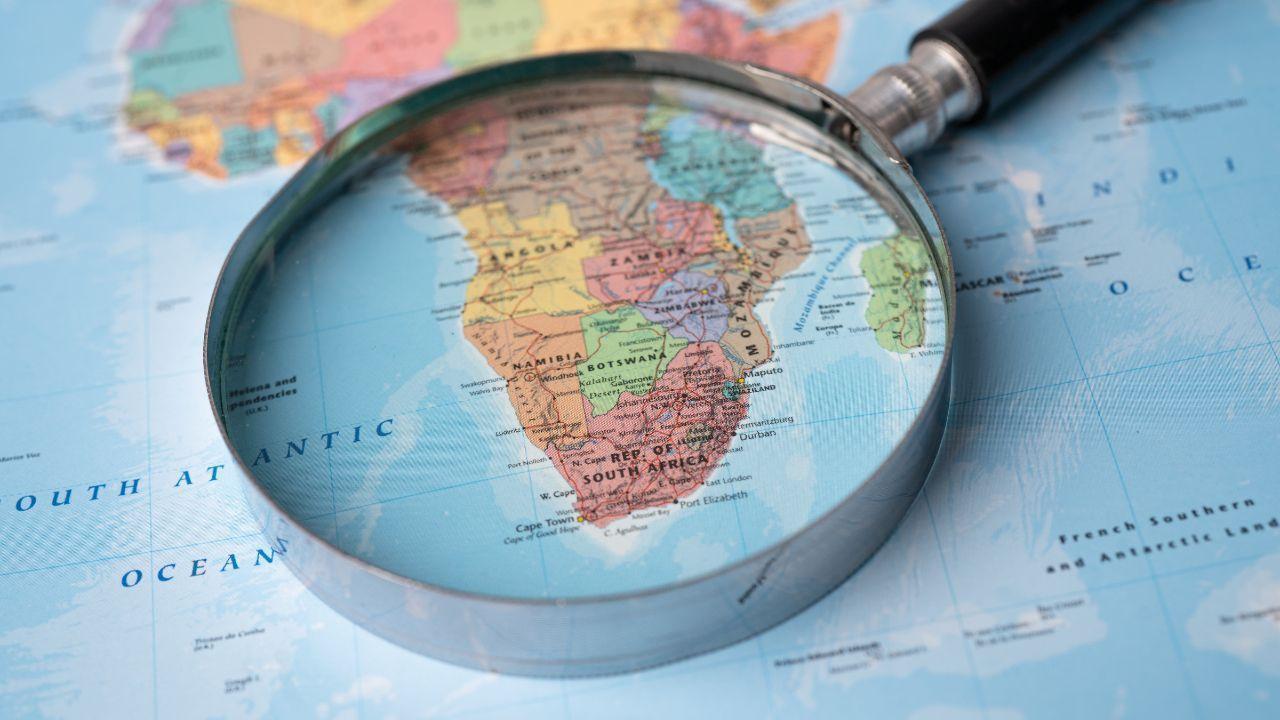
Post by : Zayd Kamal
History is not just a collection of dates and facts, but a deep reflection of humanity’s journey. From ancient civilizations to modern times, history is full of profound events that have shaped the way we live, think, and interact with each other. Understanding these significant moments helps us gain insight into our present-day lives and informs our future decisions. In this article, we will take a deep dive into the most significant events in world history, examining how they altered the course of humanity.
One of the first major events that set the stage for human civilization was the birth of agriculture in Mesopotamia around 10,000 BC. This shift from a nomadic lifestyle to settled farming allowed humans to build cities and form societies. The fertile crescent, which is modern-day Iraq, is considered the cradle of civilization, where writing, laws, and early forms of government were developed. The rise of cities like Sumer and Babylon marks the beginning of recorded history, which paved the way for complex societies.
The ancient Egyptians contributed significantly to history, not just through their monuments but through their culture and governance. The building of the Great Pyramids, particularly the Pyramid of Giza around 2560 BC, remains one of the world’s greatest architectural feats. Beyond architecture, ancient Egypt introduced concepts like the afterlife, astrology, and medicine. The creation of hieroglyphic writing also marked a significant development in human communication and the preservation of knowledge.
The Roman Empire, once the largest empire in the world, spanned continents and left an indelible mark on law, politics, and infrastructure. However, its fall in 476 AD marked the beginning of the Middle Ages, a pivotal time in European history. The fall of Rome didn't just lead to political fragmentation; it resulted in the spread of Christianity throughout Europe, the rise of feudalism, and the eventual formation of the modern Western world. The legacy of Roman law, governance, and culture continues to influence Western societies today.

The Renaissance, which began in Italy in the 14th century, was a period of rebirth in art, science, and human thought. It was during this time that we saw the works of Leonardo da Vinci, Michelangelo, and Galileo, who pushed the boundaries of science and art. This cultural movement, which later spread across Europe, not only revived classical knowledge but also laid the groundwork for the modern scientific revolution. The printing press, invented by Johannes Gutenberg, played a crucial role in spreading knowledge during this era.
The American Revolution of 1775-1783 was a transformative event that led to the birth of the United States and a new form of governance based on democracy and individual rights. This revolution inspired numerous other movements around the world, pushing nations to reconsider their political systems. The principles of freedom and equality that arose from this event still serve as the foundation for democratic systems around the world today. The drafting of the U.S. Constitution remains one of the most significant documents in human history.
Just a few decades after the American Revolution, the French Revolution (1789-1799) erupted, challenging centuries of absolute monarchy and social inequality. The overthrow of the French monarchy led to the establishment of the First French Republic and brought about major social, political, and cultural changes in France. The revolution introduced the ideals of liberty, equality, and fraternity, which became a blueprint for future democratic revolutions and political reforms. The effects of the French Revolution were felt across Europe and the world.
The Industrial Revolution, which began in Great Britain in the late 18th century, fundamentally changed the way goods were produced, consumed, and distributed. The advent of mechanized agriculture, steam engines, and factories reshaped economies and society. It marked a shift from agrarian economies to industrialized urban societies, setting the stage for the modern capitalist world. While it brought immense progress, it also led to urbanization, poor working conditions, and environmental challenges that continue to shape the world today.
The 20th century was defined by two World Wars, each of which dramatically altered the global political landscape. World War I (1914-1918) marked the collapse of empires and the redrawing of borders in Europe and the Middle East. However, it was World War II (1939-1945) that truly reshaped the modern world, with the defeat of Nazi Germany and Imperial Japan. The creation of the United Nations, the Cold War, and the nuclear age were direct outcomes of these devastating global conflicts. The wars led to the decolonization of many nations and the rise of the United States and Soviet Union as superpowers.
The Civil Rights Movement in the United States during the 1950s and 1960s brought attention to the systemic racial inequalities that African Americans faced. Figures like Martin Luther King Jr., Rosa Parks, and Malcolm X led the fight for equal rights, pushing for desegregation, voting rights, and economic justice. The success of this movement marked a turning point in the global struggle for human rights, inspiring similar movements around the world.
The final event on our list is the Digital Revolution, which began in the late 20th century and has accelerated in the 21st century. The invention of the personal computer, the internet, and mobile technologies has transformed how we communicate, work, and live. The digital age has also fostered globalization, enabling the exchange of information, ideas, and commerce on an unprecedented scale. With the rise of artificial intelligence and biotechnology, the world continues to be shaped by digital innovations that influence nearly every aspect of society.
Summary: This article explores some of the most significant events in world history, highlighting how they shaped human civilization. From the birth of agriculture in Mesopotamia to the revolutionary shifts brought by the Industrial Revolution and World Wars, each event has played a crucial role in shaping the modern world. Key milestones such as the rise of ancient Egypt, the fall of the Roman Empire, the Renaissance, and major political movements like the American and French Revolutions are discussed. These events not only influenced their respective eras but continue to impact societies, governments, and cultures today. Understanding these historical moments provides valuable lessons for the present and future.
Disclaimer: The information provided in this article is for educational purposes only. While DXB News Network strives for accuracy, readers should verify historical facts through credible sources for comprehensive learning.
#trending #latest #KeyEvents #WorldHistory #HistoryMatters #ShapingCivilizations #HumanHistory #HistoricalMoments #GlobalHistory #CulturalShifts #HistoricalInfluence #LessonsFromHistory #breakingnews #worldnews #headlines #topstories #globalUpdate #dxbnewsnetwork #dxbnews #dxbdnn #dxbnewsnetworkdnn #bestnewschanneldubai #bestnewschannelUAE #bestnewschannelabudhabi #bestnewschannelajman #bestnewschannelofdubai #popularnewschanneldubai

Unlock wealth slowly with the quiet power of compound interest... Read More

The 4th edition of the DP World ILT20 starts on UAE National Day, Dec 2, running till Jan 4, 2026, with top global T20 stars set to compete... Read More











Rashid Al Obad Appointed Director General of Shams
Sheikh Sultan issues Emiri Decree appointing Rashid Al Obad as Director General of Sharjah Media Cit

Dubai’s Government Best Practices Series 2025 Highlights Innovation
The Government Best Practices Series 2025 in Dubai focused on government innovation, digital service

Dubai Hosts GenAI Masterclass for Future Family Leaders
Dubai Centre for Family Businesses held a GenAI masterclass to train 24 young leaders in using AI fo

ArtDomain by DXB News Network Opens to Strong Global Response — Applications Begin for A50 and The Art Guild.
ArtDomain by DXB News Network Opens to Strong Global Response — Applications Begin for A50 and The A

Dembele's Goal Gives PSG a 1-0 Win Over Arsenal in Semi-final
Ousmane Dembele scores early to give PSG a 1-0 win over Arsenal in their Champions League semi-final